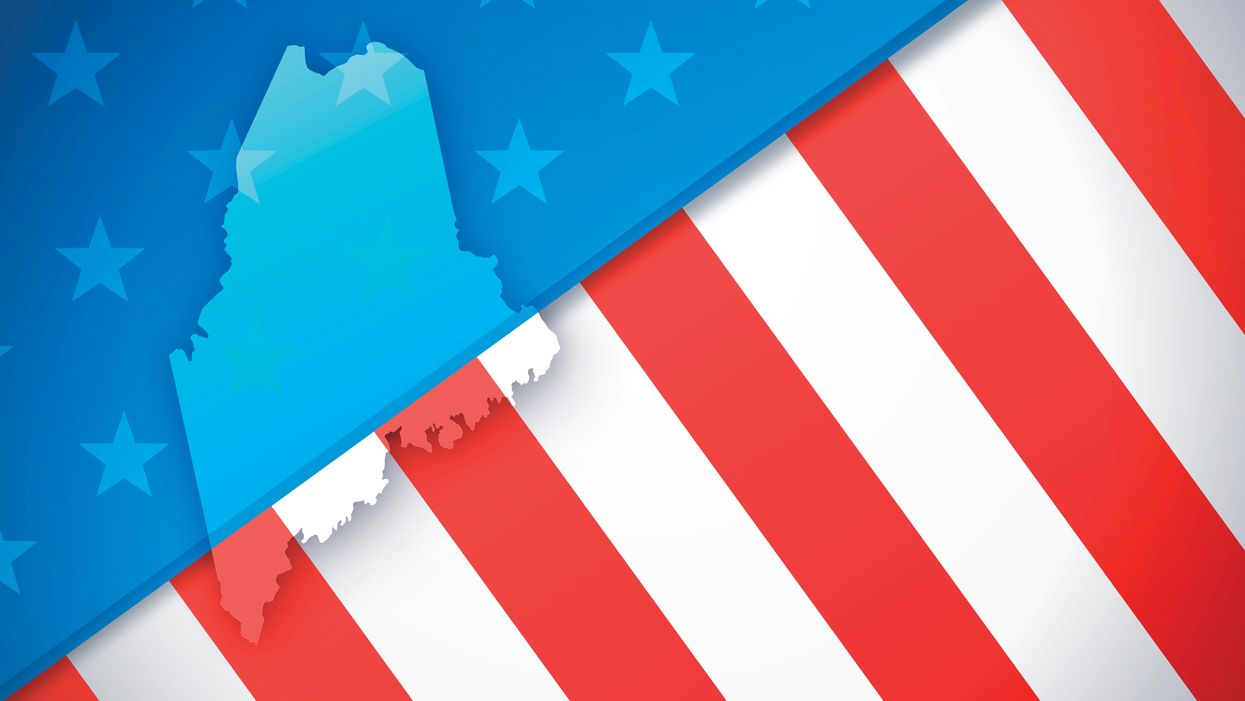There is no more doubt: Ranked-choice voting will be used for the first time in a presidential election this year.
Voters in Maine will be allowed to list their candidates in order of preference, and its four electoral votes will only be awarded to those who get a majority's support, under a decision Tuesday from the state Supreme Court.
The ruling is a huge symbolic victory for advocates of ranked elections, who view them as a magic formula for improving democracy by reducing the major parties' influence, encouraging more consensus-building campaigns, promoting the prospects of outsiders — and guaranteeing winners can claim a mandate because they have been endorsed by most voters.
The justices unanimously rejected the state Republican Party's efforts to force a referendum in November on the future of so-called RCV in the state, the first to use the system in contests for many state offices and Congress. Under Maine's rules for a "people's veto," getting that measure on the 2020 ballot would have automatically prevented RCV's application in the contest among President Trump, former Vice President Joe Biden and three minor-party candidates.
Now, voters will be allowed to rank all of them. If no one is the top choice on most ballots, the candidate with the fewest No. 1 votes will be dropped and their votes will be redistributed to the No. 2 choices — that process continuing in a series of computer-driven runoffs until one of them (presumably Trump or Biden) has garnered majority backing.
Maine already does things differently. It's one of two states, with Nebraska, that awards two electoral votes to the statewide winner and one vote to the person who prevails in each House district.
Trump narrowly carried the rural 2nd District in 2016, but at first blush his chances of repeating that look to go down because of the use of RCV. Two years ago, the Republican holding that congressional seat secured the most first place votes but was defeated after the instant runoff system redistributed most of the ballots of the lesser candidates to Democrat Jared Golden.
Critics say the system is needlessly complex and can disenfranchise voters who don't understand it.
Maine's high court concluded the GOP had not gathered enough valid signatures on its ballot petitions, siding with Democratic Secretary of State Matt Dunlap, who had tossed out several thousand of the 67,00 names submitted this summer.
Acting two weeks after ballots with RCV for president started rolling off the presses, the justices reversed a lower court, which said the Republicans had met their burdenwith 22 signatures to spare. The issue in the case was a narrow one — whether two of the petition circulators were required to be registered voters in the town where they were doing their canvassing. The high court said yes.
"This is a powerful moment for ranked-choice voting supporters," Rob Richie of FairVote, one of the most prominent RCV advocacy groups, exalted after the court decision. "America was founded on the promise that your vote matters. We haven't always lived up to that promise, but over time, our nation's citizens strived to ensure that every vote counts."
The ruling puts Maine on course to rely on rankings in its presidential primaries starting in 2024. This year the Democrats used RCV in five presidential primaries and caucuses.
The number of cities using ranked-choice voting has more than doubled in the past decade and will be used to choose the mayor of New York next year. Voters in Alaska and Massachusetts will decide in November whether their states will also use RCV almost exclusively in the future.




















